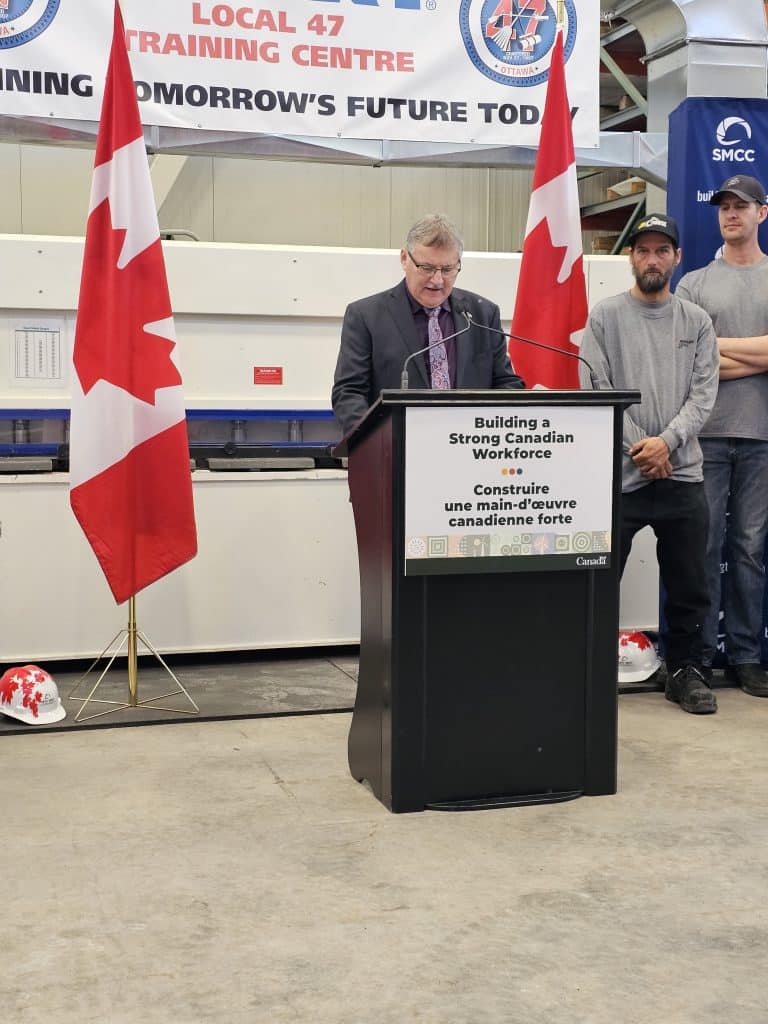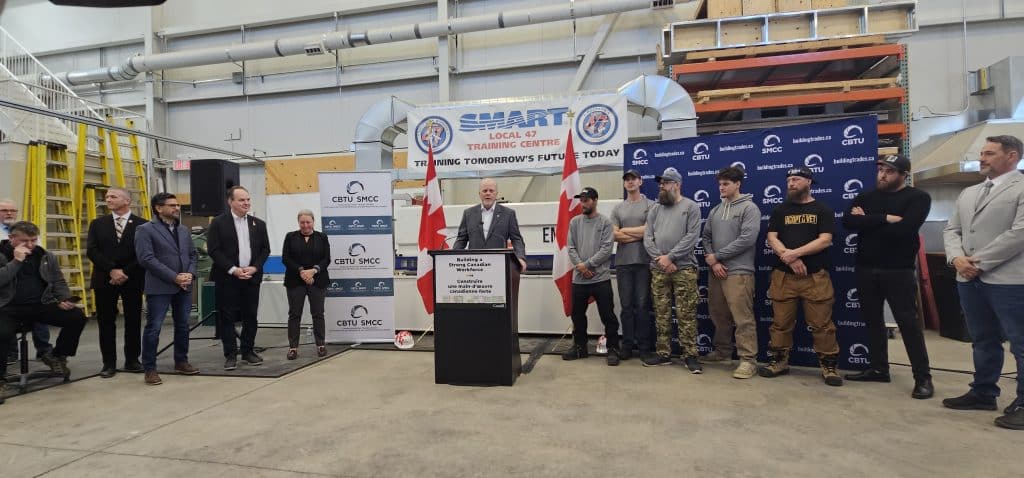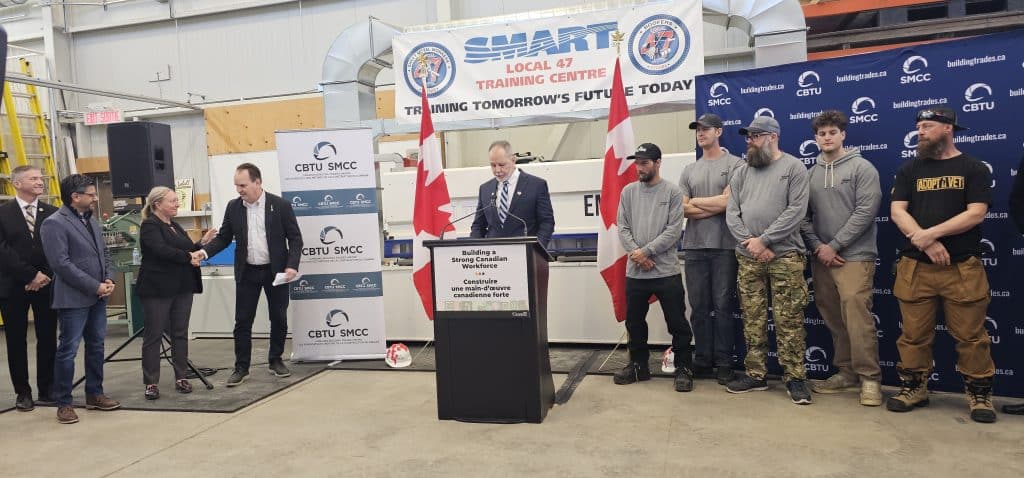As the spending legislation known as the “One Big Beautiful Bill” made its way through the United States House and Senate in spring and summer of 2025, SMART had a constant presence in the offices of both Democratic and Republican lawmakers. SMART’s Governmental Affairs staff met repeatedly with representatives and senators, explaining how provisions in the legislation that cut tax credits, infrastructure funding, clean energy funding, Medicaid funding and more would negatively impact SMART members’ work opportunities and health care coverage.
“Cutting the waste and fraud, nobody’s against that. But these cuts go way deeper than that,” said SMART General President Michael Coleman in a video message to members explaining the bill. “These cuts are actually going to have an impact on our plans and our members. We’re all for cutting waste in the federal government, but they’re going to have to end up cutting programs that are essential for regular, working people.”
Unfortunately, in a move that says a lot about how politics works in today’s day and age, representatives and senators moved forward with a bill that included those cuts.
While some of the worst elements of the bill — including the most extreme energy tax credit cuts and an AI provision that threatened SMART-TD bus operators — were removed due to the collective work of SMART members nationwide and the labor movement, Congress pushed through cuts to Medicaid that will cause working families to suffer and raise the costs of health care plans for SMART members and families, cuts to tax credits that will lead to canceled projects and lost work hours for sheet metal workers, and more. And on July 4, President Trump signed the bill into law.
“Members will lose work. Costs will go up. And that just doesn’t make sense,” Coleman said in a video on tax credits cut by the bill.
Across the construction sector, the bill threatens millions of jobs and work hours, which translates to billions of dollars in lost annual wages and benefits. Members may not feel the consequences immediately. But in the years to come, construction workers and their families, alongside working people everywhere, will lose out on important jobs.
“Simply put, it is the equivalent of terminating more than 1,000 Keystone XL pipeline projects,” said North America’s Building Trades Unions (NABTU) President Sean McGarvey in a statement.
The legislation signed by President Trump included a tax exemption on overtime earnings. However, despite advocacy and proposed fixes, the bill does not extend this benefit to employees covered by the Railway Labor Act — AKA, railroaders.
“Our members sacrifice holidays, family time and weekends to keep this country running. Excluding them from a policy aimed at easing the burden on working Americans is more than disheartening,” said SMART-TD National Legislative Director Jared Cassity. “But we’re not walking away from this. We’ll keep pushing until our voices are heard.”
The cuts to Medicaid are simply devastating across the board. They don’t take effect right away, but once they do, they will hurt blue-collar workers and their families.
“The biggest impact will be on families that are fighting to keep their healthcare. Right now, the CBO scores that 16 million people will lose their healthcare coverage, which inevitably is going to lead to preventable deaths in the future,” said Coleman in another video to members. “And for members who don’t think cuts to Medicaid are going to have an impact on them, I can tell you that history has proven that any cuts to Medicaid lead to an increase in the costs of the health plans that we fund and that we fight for every single day.”
SMART will continue to advocate for members and working families, at the federal level and in states and cities across the United States. But make no mistake: The bill signed into law in July will hurt workers for years to come.



